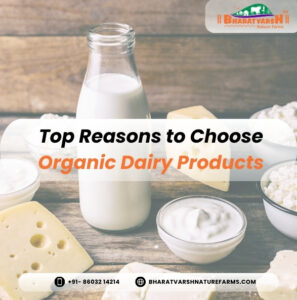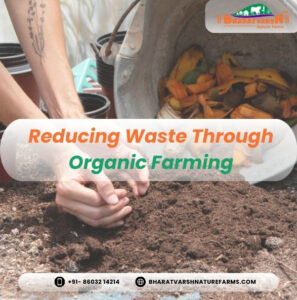With the increasing focus on sustainable living and organic food, backyard gardening for edible plants and balcony-friendly edible plants are becoming more popular than ever. Growing your own fruits, vegetables, and herbs offers numerous benefits, from enjoying fresh produce to reducing your carbon footprint. Whether you have a sprawling backyard or a small balcony, creating an edible garden is a rewarding and fulfilling activity.
This guide will introduce you to the best edible plants for your backyard or balcony, providing practical tips for both backyard and balcony gardeners. By the end of this blog, you’ll be well-equipped to embark on your own journey of growing vegetables at home, and harvesting fresh, healthy produce.
Why Grow Edible Plants at Home?
Growing edible plants at home is more than just a hobby-it’s a step towards a healthier and more sustainable lifestyle. Here’s why homegrown fruits and vegetables are a great idea:
- Fresher and Healthier Produce: Store-bought produce often travels long distances and loses nutrients along the way. Homegrown produce is picked fresh, providing more vitamins and better taste.
- Cost-Effective: Once you’ve set up your garden, growing your own food can save you a lot of money in the long run, especially with the rising cost of organic produce.
- Environmentally Friendly: Growing your own food reduces the need for plastic packaging and the carbon emissions associated with transporting food.
- Connection to Nature: Gardening can be incredibly therapeutic, offering a connection to nature even in urban settings.
Now, let’s dive into the best edible plants for home gardens, including those suitable for balconies and small spaces.

Best Edible Plants for Your Backyard
If you’re fortunate enough to have a backyard, you can grow a wide variety of fruits, vegetables, and herbs. Here are some of the best edible plants to consider:
1. Tomatoes
Tomatoes are a staple in many home gardens. They are relatively easy to grow, require minimal space, and produce an abundance of fruit. Whether you choose cherry tomatoes or large heirlooms, you’ll enjoy fresh, juicy tomatoes all summer long.
- Planting Tip: Tomatoes thrive in sunny spots with well-drained soil. Make sure to support your plants with stakes or cages as they grow.
- Best Varieties: Cherry, Roma, Beefsteak
2. Peppers
Peppers, whether sweet or hot, are another popular choice for backyard gardening for edible plants. They are rich in vitamins and can be used in a variety of dishes.
- Planting Tip: Peppers love the heat, so make sure they get plenty of sunlight. You can grow them in pots or directly in the ground.
- Best Varieties: Bell peppers, Jalapeños, Cayenne
3. Zucchini
Zucchini is a prolific producer and can be grown easily in a backyard garden. One plant can provide a significant yield throughout the growing season.
- Planting Tip: Zucchini requires space to spread out, so ensure you have enough room. Water regularly and harvest while they’re young for the best taste.

4. Leafy Greens (Spinach, Kale, Lettuce)
Leafy greens like spinach, kale, and lettuce are fast-growing and thrive in most backyard gardens. They’re packed with nutrients and can be harvested multiple times during the growing season.
- Planting Tip: Leafy greens prefer cooler temperatures, making them ideal for spring and fall planting. Water consistently to prevent them from bolting (going to seed).
5. Herbs (Basil, Rosemary, Mint)
Herbs are some of the easiest edible plants to grow and can be grown alongside vegetables or in dedicated herb gardens. Not only do they add flavor to your meals, but they also attract pollinators like bees and butterflies.
- Planting Tip: Herbs can be grown in pots or directly in the ground. Make sure they get at least 4-6 hours of sunlight daily.
- Best Varieties: Basil, Rosemary, Mint, Thyme, Oregano
Best Edible Plants for Your Balcony
For those living in apartments or homes with limited outdoor space, balcony-friendly edible plants are the perfect solution. You don’t need a large backyard to enjoy the benefits of homegrown produce—just a few pots and a bit of sunshine!
1. Strawberries
Strawberries are an excellent choice for balcony-friendly edible plants. They can be grown in pots or hanging baskets, making them ideal for small spaces.
- Planting Tip: Use containers with good drainage and place them in a sunny spot. Strawberries grow best in full sun and well-drained soil.
2. Lettuce and Leafy Greens
Like in backyards, leafy greens are a great choice for small balcony spaces. They grow quickly, don’t require deep pots, and can be harvested multiple times.
- Planting Tip: Choose shallow containers for greens like lettuce and spinach. Water them regularly to prevent drying out in the sun.
3. Herbs
Herbs like basil, cilantro, and parsley thrive in containers, making them perfect for balconies. They require minimal space and can be harvested frequently for cooking.
- Planting Tip: Herbs love the sun, so place them in the sunniest spot on your balcony. Make sure they are watered regularly.

4. Peppers
Peppers are surprisingly adaptable to balcony gardens. Compact varieties can be grown in pots, and they thrive in the warm, sheltered environment that a balcony can provide.
- Planting Tip: Choose a pot that is at least 12 inches deep and place it in a sunny spot. Water consistently, but don’t let the soil become waterlogged.
5. Radishes
Radishes grow quickly and are ideal for small spaces like balconies. They are one of the easiest edible plants to grow and can be harvested in as little as 4-6 weeks.
- Planting Tip: Radishes grow best in cool weather, so plant them in early spring or fall. Use a container that’s at least 6 inches deep.
Sustainable Balcony Gardening Tips
For those interested in sustainable balcony gardening, here are some tips to ensure your gardening efforts are eco-friendly:
- Use Organic Soil and Fertilizers: Choose organic potting mixes and natural fertilizers like compost or worm castings to keep your plants healthy without chemicals.
- Water Wisely: Water your plants in the early morning or late evening to prevent evaporation. Use a drip irrigation system or self-watering containers for efficient watering.
- Recycle Containers: Use recycled containers for your plants. Old buckets, tubs, or even large coffee cans can make excellent planters.
Organic Gardening at Home: Tips for Success
Whether you’re growing plants in your backyard or on a balcony, here are some additional tips to ensure a successful organic gardening experience:
- Start Small: If you’re new to gardening, start with just a few plants. Learn their needs, and gradually expand your garden as you become more confident.
- Choose Native Plants: Native plants are adapted to your local climate and are often more resistant to pests and diseases.
- Use Companion Planting: Certain plants, when grown together, can help each other thrive. For example, planting marigolds near vegetables can deter pests.
- Compost: Create your own compost from kitchen scraps to enrich the soil naturally and reduce waste.
- Harvest Regularly: Regularly harvesting fruits, vegetables, and herbs encourages the plants to produce more.

Benefits of Growing Edible Plants at Home
There are numerous benefits to growing vegetables at home:
- Fresh, Nutritious Produce: Homegrown produce is fresher and retains more nutrients than store-bought items.
- Cost Savings: Growing your own food can save you money, especially when it comes to organic produce.
- Environmentally Friendly: Home gardening reduces your reliance on commercial agriculture, which can involve the use of harmful pesticides and fertilizers.
- Health Benefits: Gardening is a great form of physical activity, and studies have shown that it can reduce stress and improve mental health.
Conclusion
Creating your own backyard or balcony garden filled with edible plants is a rewarding way to enjoy fresh, healthy produce while promoting sustainability. Whether you have a large backyard or a small balcony, the options are endless when it comes to growing your own food. From tomatoes and peppers to strawberries and herbs, you can cultivate a variety of plants that will provide you with delicious, homegrown goodness.
For more tips on sustainable gardening and organic farming, visit Bharatvarsh Nature Farms.
FAQs
- What are the easiest edible plants to grow at home?
Some of the easiest plants to grow at home include tomatoes, peppers, herbs like basil and mint, leafy greens like spinach and lettuce, and radishes. - Can I grow vegetables in small spaces like a balcony?
Yes! Many vegetables and herbs can be grown in containers on a balcony. Strawberries, peppers, lettuce, and herbs are all great choices for small spaces. - How much sunlight do edible plants need?
Most edible plants need at least 6-8 hours of sunlight per day. Ensure your garden space, whether backyard or balcony, gets enough sun for your plants to thrive. - What are the best organic fertilizers for edible plants?
Compost, worm castings, and natural manure are some of the best organic fertilizers for home gardens. They enrich the soil without using
Also Read: Top 10 Plants to Beautify Your Home Garden – Bharatvarsh Nature Farms




